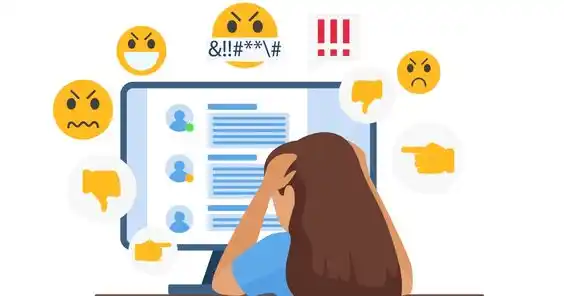Online Safety for Children: A Priority in Today’s Digital Education Era

In our rapidly evolving digital landscape, change is the only constant. Education, too, has embraced this evolution, with online learning and homeschooling leading the way in redefining how children are educated. While these innovations bring exciting opportunities, they also underscore the importance of keeping our children safe in the online environment.
As parents and educators, it is our collective responsibility to ensure that children navigate the digital world securely. With unlimited access to the internet, it’s more important than ever to safeguard them from its potential dangers.
What Does Internet Safety Mean?
Internet safety encompasses a range of measures designed to protect users—especially children—from online threats. These threats include cyberbullying, identity theft, malware, and data breaches. As children become increasingly comfortable with technology, we must guide them in developing safe online habits and ensure they are aware of potential risks.
Why Internet Safety Is Critical in Online Education
The shift towards online learning has made internet safety an essential component of a child’s education. More screen time means more exposure to online risks, making it crucial for both parents and teachers to be proactive in protecting young learners.
According to Statistics Canada, 1 in 4 teenagers have experienced cyberbullying—a troubling figure that highlights the urgency of addressing online safety.
The Dangers Children Face Online
As students spend more time online, they are exposed to various risks. Understanding these dangers helps parents and educators better protect them:
- Cyberbullying: One of the most pervasive issues in the digital world, cyberbullying can have a significant impact on a child’s mental health. Many children find it difficult to cope with online harassment, leading to extreme actions such as deleting social media accounts or even withdrawal from online learning environments.
- Malware Attacks: As students download assignments and participate in online activities, they may accidentally encounter malware, which can damage devices or steal personal information.
- Sharing Private Information: Children, especially younger ones, may not fully understand the implications of sharing personal information online, leaving them vulnerable to identity theft or manipulation by online predators.
- Online Predators and Identity Theft: Predators often disguise themselves as friends, gaining children’s trust before attempting to exploit them. Identity theft can lead to long-term consequences, such as misuse of personal data for financial or criminal activities.
Practical Internet Safety Tips for Children
To ensure children are safe online, parents and educators can follow these simple yet effective practices:
- Install Protection Software: Good antivirus and firewall software can prevent harmful attacks on your devices and keep malware at bay.
- Monitor Online Activity: Keeping devices in common areas like the living room allows you to keep an eye on your child’s browsing habits.
- Activate Parental Controls: Limit access to inappropriate websites and set up restrictions on how much time children spend online.
- Open Communication: Encourage your children to talk openly about their online experiences. Let them know they can come to you if they encounter cyberbullying or harassment.
Discussing Online Safety With Your Children
Having an open conversation about internet safety is key to keeping your children safe. Here are a few ways to guide these discussions:
- Make Them Feel Safe: Let your children know they can approach you with any concerns without fear of judgment or punishment.
- Learn Together: Take online safety courses or explore educational resources together, reinforcing the importance of internet safety.
- Explain Dangers in Age-Appropriate Ways: Teach children about the risks of online predators and why certain information should remain private.
- Emphasize Privacy: Help your children understand the importance of keeping their personal information, such as their address and phone number, private.
Our Commitment to Internet Safety at CanadianGrad Academy
At CanadianGrad Academy, we take our role in ensuring internet safety seriously. We are committed to creating a secure learning environment where students can focus on their education without the fear of online threats. By integrating robust safety measures into our platform, we provide peace of mind to both parents and students, allowing them to concentrate on the most important thing: learning.
How do you discuss internet safety with your children
About CanadianGrad Academy
CanadianGrad Academy offers students worldwide the opportunity to earn a prestigious high school diploma through a wide range of flexible online courses. As a private online high school accredited by the Ontario Ministry of Education, we ensure consistent pricing for all students, provide personalized learning through WIAT-III assessments, and are committed to addressing educational obstacles. Contact us today at (647) 699-0369 or [email protected] to learn more about our comprehensive online high school programs.